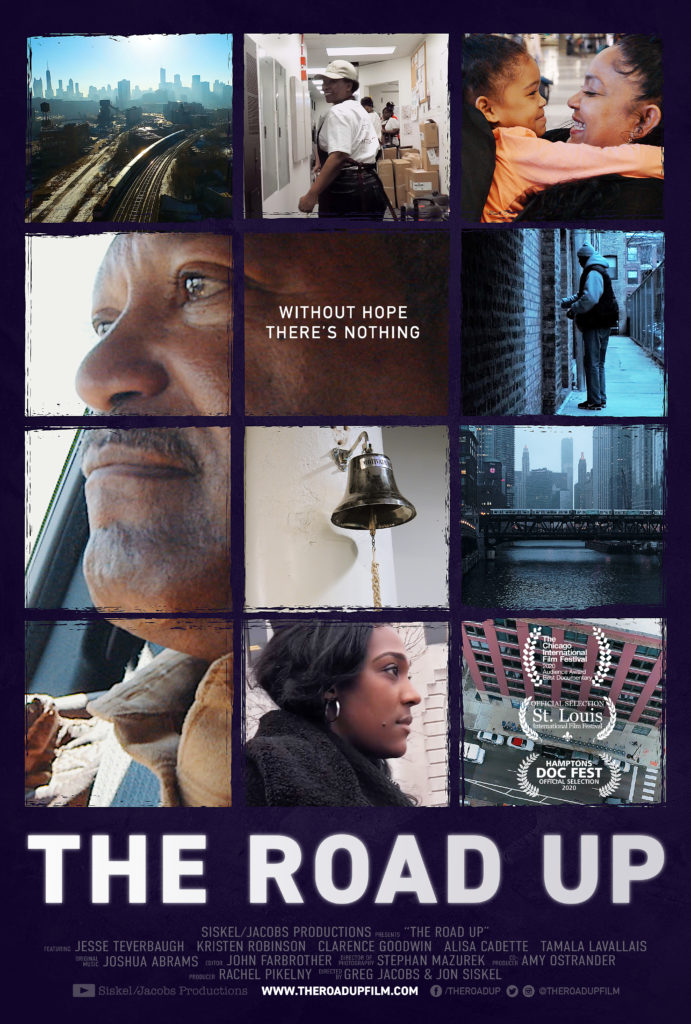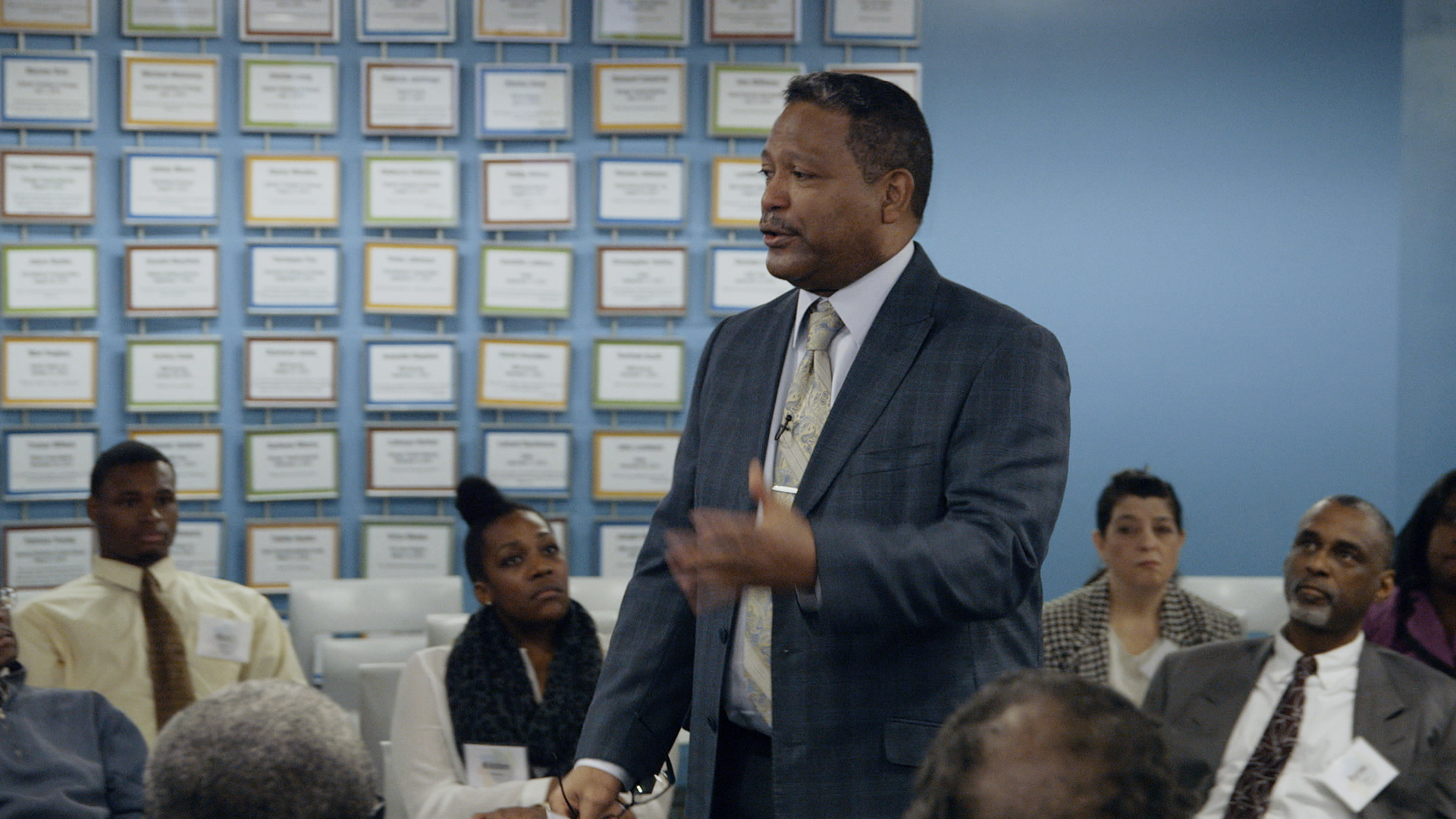
About The Road Up
The Road Up opens in a large conference room at Cara, a job-training program in Chicago’s South Loop. Cara provides services and opportunities for low-income adults who face barriers to employment, with the goal of placing them in jobs they’re expected to hold for at least a year. But first, every Cara student is required to attend a month-long “boot camp” called Transformations. And that’s where Mr. Jesse comes in.
Equal parts preacher, teacher, comedian, and coach, Jesse Teverbaugh developed and runs the Transformations class. Jesse treats every four-week session like a boxer entering the ring, exhausting himself in an effort to spark hope in the hearts of his students, a sense of possibility that most have long since lost.
For some, he becomes a surrogate father, building them up, but also calling them out.
While profoundly sensitive to the pain and trauma they’ve endured, he has little patience for excuses. It’s a “tough love” approach—emphasis on “love”—firmly grounded in the reality of the jobs he’s preparing them for. He knows they have no safety net, no room for error; one misstep—showing up late for work, arguing with a supervisor—can get them fired, reigniting a cycle that might land them back on the streets, in a shelter, or behind bars.
Jesse’s classroom lessons are reflected in the lives of the film’s four main subjects—Kristen, Clarence, Alisa, and Tamala—whose journeys, both during and after Transformations, are woven throughout. Taken together, their stories create a powerful mosaic of the struggles that millions of Americans face every day, the daunting and often interconnected barriers that prevent so many from getting—and keeping—a job.
The Road Up premiered at the Chicago International Film Festival in October 2020, where it won the Audience Award for Documentary. It went on to win the Spotlight on Inspiration Documentary Award at the St. Louis International Film Festival and the Michael Sullivan Award for Documentary Journalist at the Salem Film Fest, and premiere internationally at the Melbourne Documentary Film Festival.
The film’s national impact campaign began even before its theatrical premiere in October 2021, with internal screenings at a number of Fortune 500 companies, including Aon, JPMorgan Chase, and Google. The goal of the campaign is to create space for challenging conversations around the issues raised by the film—in particular, second chance hiring, racial equity, and inclusive employment.
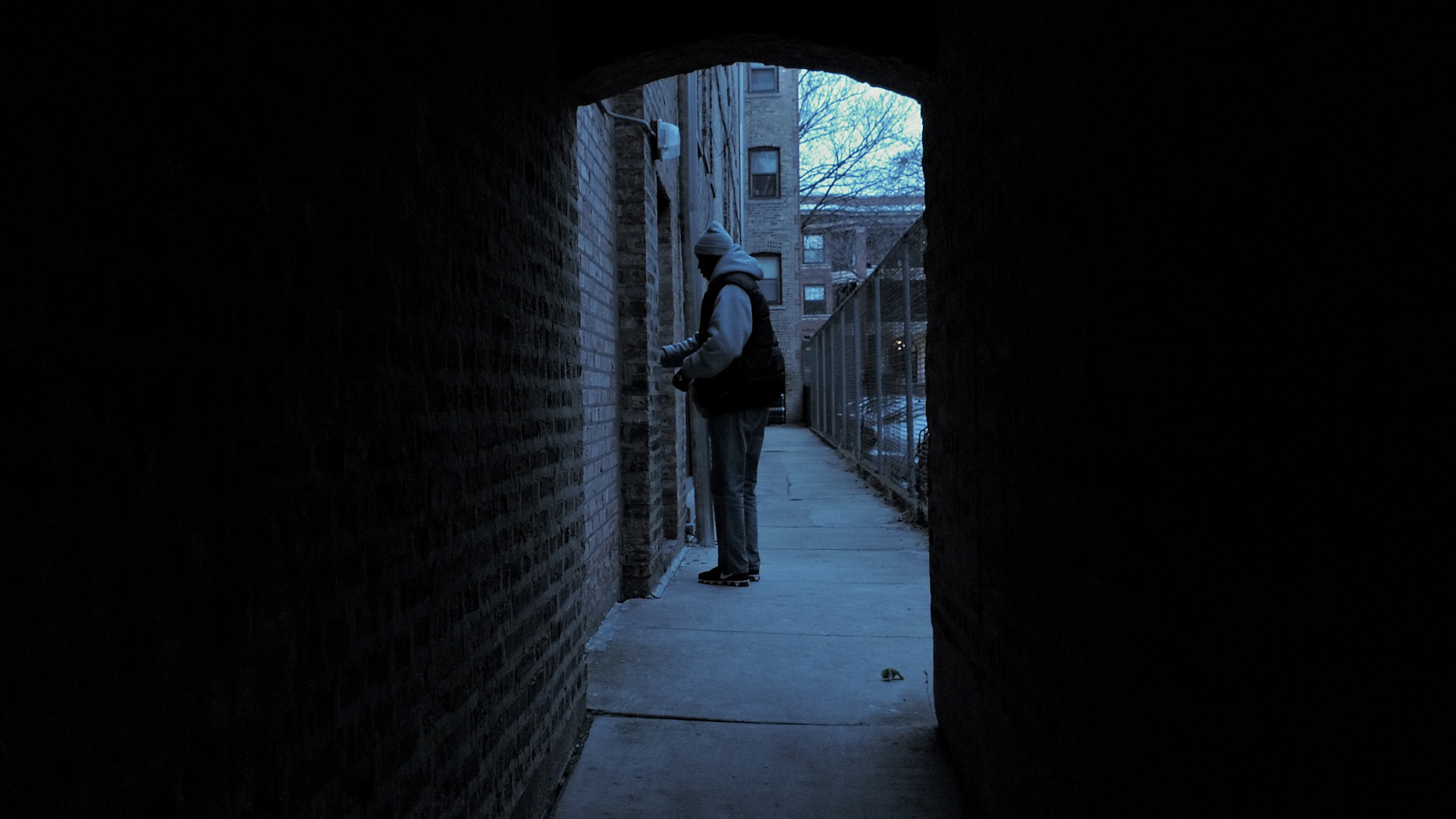
The Issues
The Road Up is not explicitly an “issue film.” Instead, what it captures is the constellation of forces that makes escaping poverty so difficult for so many Americans. On the one hand, the challenges we face as a country are the result of huge systemic forces: segregation, mass incarceration, epidemics of addiction, rapid technological change, increasing inequality, a frayed social safety net. On the other hand, none of those issues will be solved by tomorrow morning, and we all still have to get through the day.
This intersection—where the structural meets the personal—has been the central battleground in the debate over social policy in America for more than half a century. It’s also the divide that Cara’s model so powerfully seeks to bridge, making the case that the first step on the road up isn’t simply external—finding a job—it’s also internal: finding hope, connection, and community. What some dismiss as “soft skills,” Cara calls “harder skills”: conflict resolution, communication, even the ability to express love and accept it in return. To Cara, these are the essential tools that give their students the resilience they need to persist, and ultimately to thrive, even as the necessary work of pushing for broader social change continues.
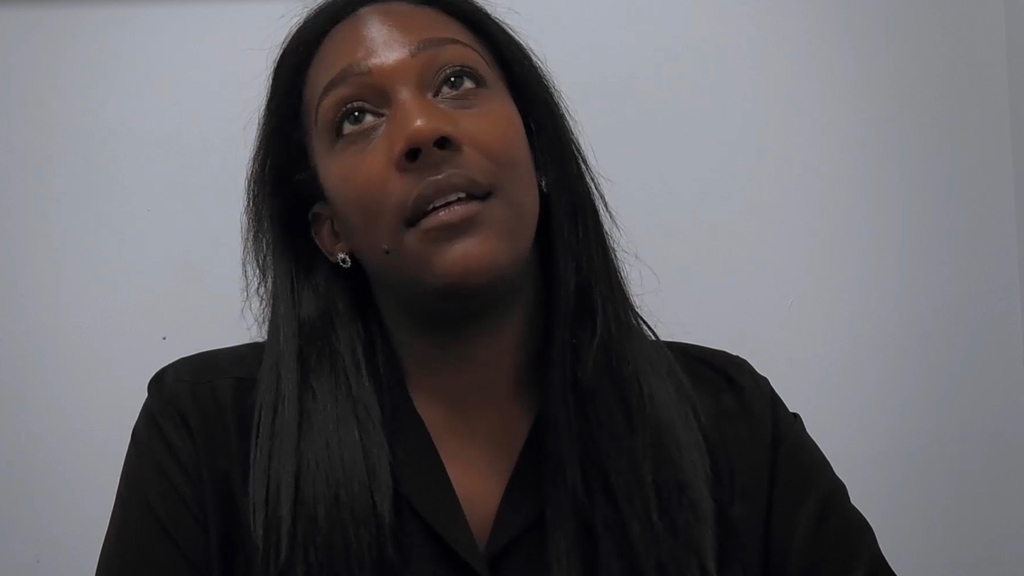
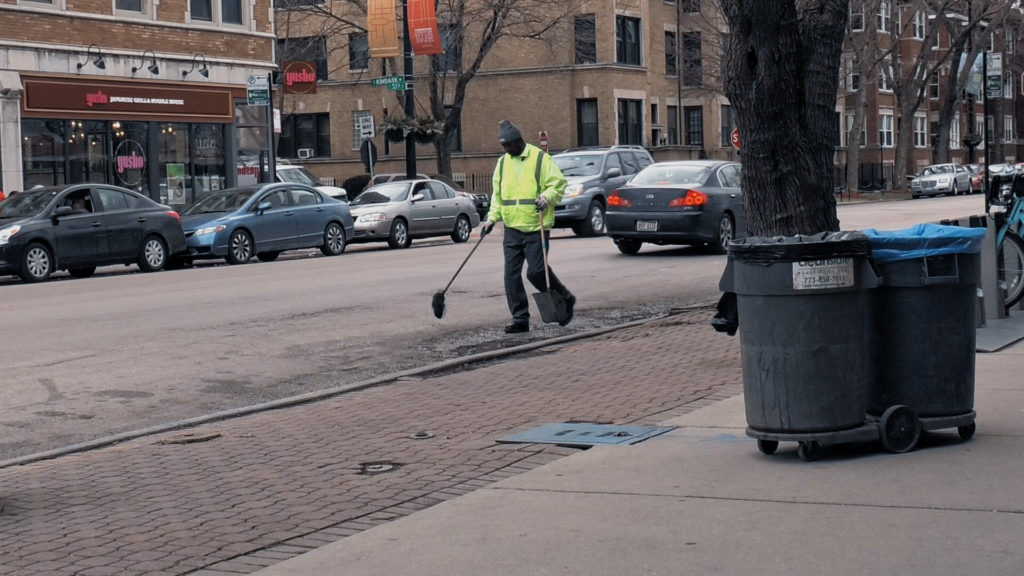
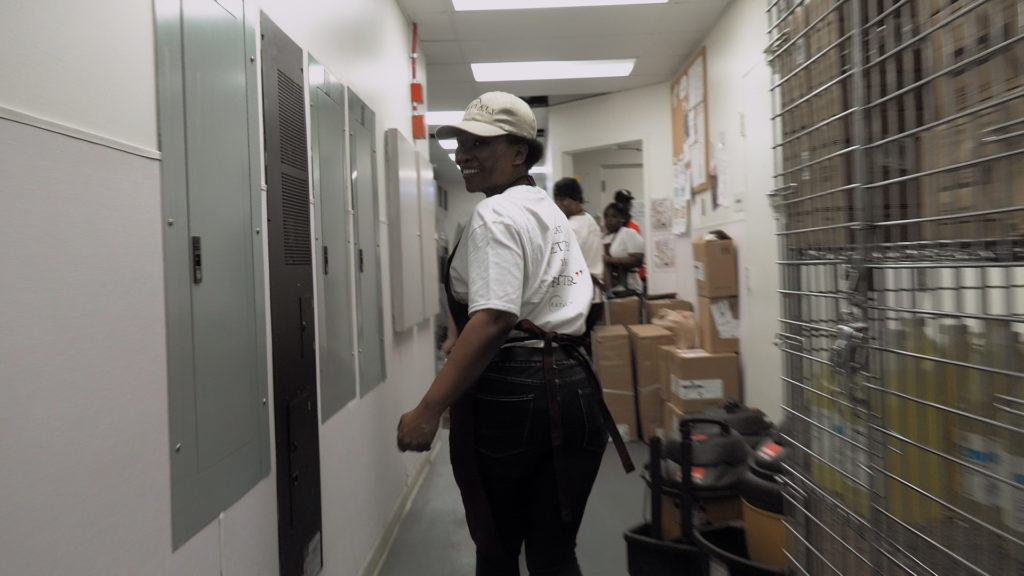
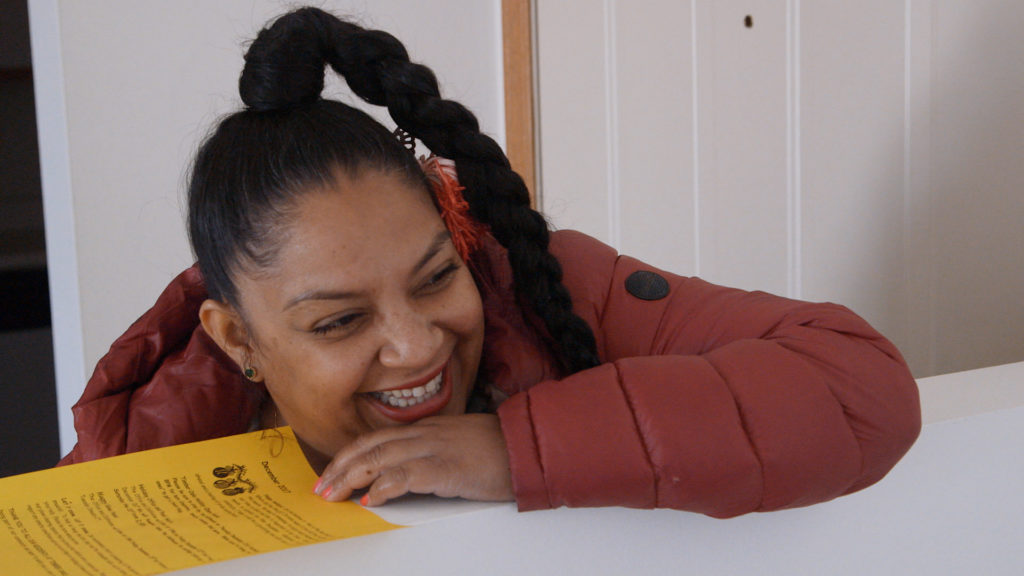
By capturing the emotion and complexity of its characters’ challenges, The Road Up spurs audiences to question their own assumptions about the population Cara serves, and what can and should be done to support them.
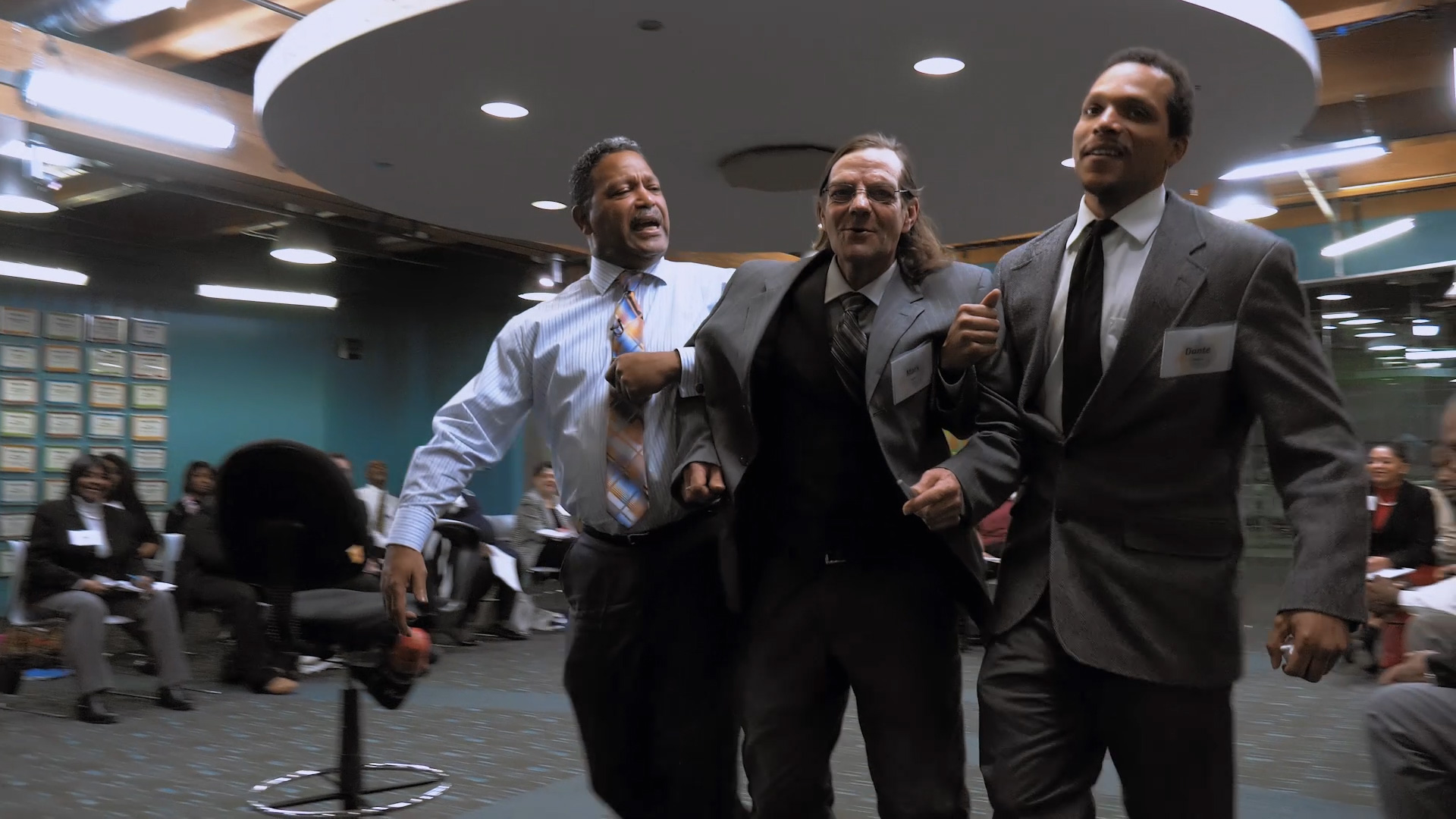
The Filmmakers
Co-Directors: Greg Jacobs & Jon Siskel
Greg Jacobs and Jon Siskel are the co-founders of Siskel/Jacobs Productions, a Chicago-based documentary production company that seeks to tell compelling stories with integrity, complexity, emotion, and humor.
Most recently, Greg and Jon co-directed The Here Now Project, which captures a year in the life of climate change entirely through the eyes—and cameras—of everyday people around the world. Before that, they co-directed (with Danny Alpert) No Small Matter, the first feature documentary to explore the power and potential impact of early childhood education. Completed in late 2018, No Small Matter has helped moved the needle on the issue at a national scale, through over 1400 screenings and an ambitious impact campaign.
Prior to No Small Matter, Greg and Jon produced and directed the documentary feature Louder Than a Bomb, which follows four Chicago-area high school poetry teams as they prepare to compete in the world’s largest youth slam. The winner of 17 festival prizes, Louder Than a Bomb was hailed as “one of the 10 best documentaries of 2011” by Roger Ebert, and received a perfect 100% rating on RottenTomatoes.com. In January of 2012, Louder Than a Bomb had its world television premiere on the Oprah Winfrey Network, as an official selection of the “OWN Documentary Club”. The film has become a staple in middle- and high school classrooms, and has helped seed LTAB-style slams in fifteen cities and counting.
In 2008, SJP produced the landmark History Channel special 102 Minutes That Changed America, which won three Primetime Emmys, including Outstanding Nonfiction Special, and was named the best nonfiction TV episode of the year by iTunes. SJP has produced shows that have aired on PBS, Discovery, and the National Geographic Channel, including Witness: Katrina, which won the 2011 News and Documentary Emmy for Outstanding Historical Programming.
Greg is a 2016-2017 New America Fellow and the author of Getting Around Brown, a history of school desegregation in his hometown of Columbus, Ohio. Jon is the former board president of Free Spirit Media, a Chicago youth media organization.
Producer: Rachel Pikelny
Rachel Pikelny is an award-winning filmmaker and producer recently named to DOC NYC’s “40 Under 40” list. While serving as the Director of Production at SJP, Rachel produced The Road Up, No Small Matter, Unexpected Justice, and several other projects, including her own directorial debut, Grace, a short film about a Chicago-area breast cancer survivor and the battle that begins when everyone else thinks the war is already won. The founder of Nyla Pictures, Rachel was previously affiliated with Chicago’s Kartemquin Films and has produced several documentaries for WTTW in Chicago.
Co-Producer: Amy Ostrander
Amy Ostrander was Director of Story Development and a segment producer for Towers Productions. She held positions with Columbia/Tri-Star Pictures in New York City. An attorney, she was previously with Bell, Boyd and Lloyd in Chicago and now represents victims of domestic violence through the Pro Bono Network of Oak Park.
Director of Photography: Stephan Mazurek
Chicago-based cinematographer Stephan Mazurek has served as director of photography on several SJP projects, including Head On for Discovery, Louder Than a Bomb, and The Road Up. As a cameraman, he has worked on a variety of films, including Love Is a Verb, Love Gilda, The War and Peace of Tim O’Brien, and No Small Matter, as well as shows and documentaries for PBS, ESPN, National Geographic Channel, History, and A&E. An accomplished playwright, theater director, and production designer, Stephan’s work has been seen on stages around the world, including the Public Theatre, the Goodman Theatre, and Steppenwolf.
Editor: John Farbrother
John Farbrother has edited several SJP documentaries, including Louder Than a Bomb, Head On, and No Small Matter (with Miranda Yousef). John co-edited the Emmy-winning and Academy Award-nominated PBS Frontline documentary Abacus: Small Enough to Jail. The film received the 2017 Critics’ Choice Award for Best Political Documentary, was nominated for a Peabody Award, and was selected by the National Board of Review as one the Top Five Documentaries of 2017. Most recently, John edited Finding Yingying, which won the 2020 Documentary Special Jury Prize for Breakthrough Voice at SXSW; One with the Whale, which aired on Independent Lens in 2024; and The Dating Game, which premiered at Sundance in 2025.
Original Score: Joshua Abrams
Joshua Abrams is a composer, bassist, and improviser. Since the mid-1990s, he has been a key figure in Chicago’s creative music communities and an international touring musician with artists across genres, including his own project, Natural Information Society. Abrams has scored numerous documentaries, including The Trials of Muhammad Ali, and several films with Steve James, including the Academy Award-nominated Abacus: Small Enough to Jail; Life Itself; The Interrupters; and the acclaimed series America to Me.
Engagement Director: Tanya Ward
Tanya Ward is an engagement and social media marketing professional, with more than 15 years in grassroots and traditional marketing engagement, and 8+ years in social media content marketing. She is a founding member of the Englewood Arts Collective, which was formed to help produce artists, events, and interactions that reflect the Englewood community of Chicago in a positive way. Under the persona of FoxBrownFox, she serves the film/theater/arts community as a connector, publicist, and media consultant.
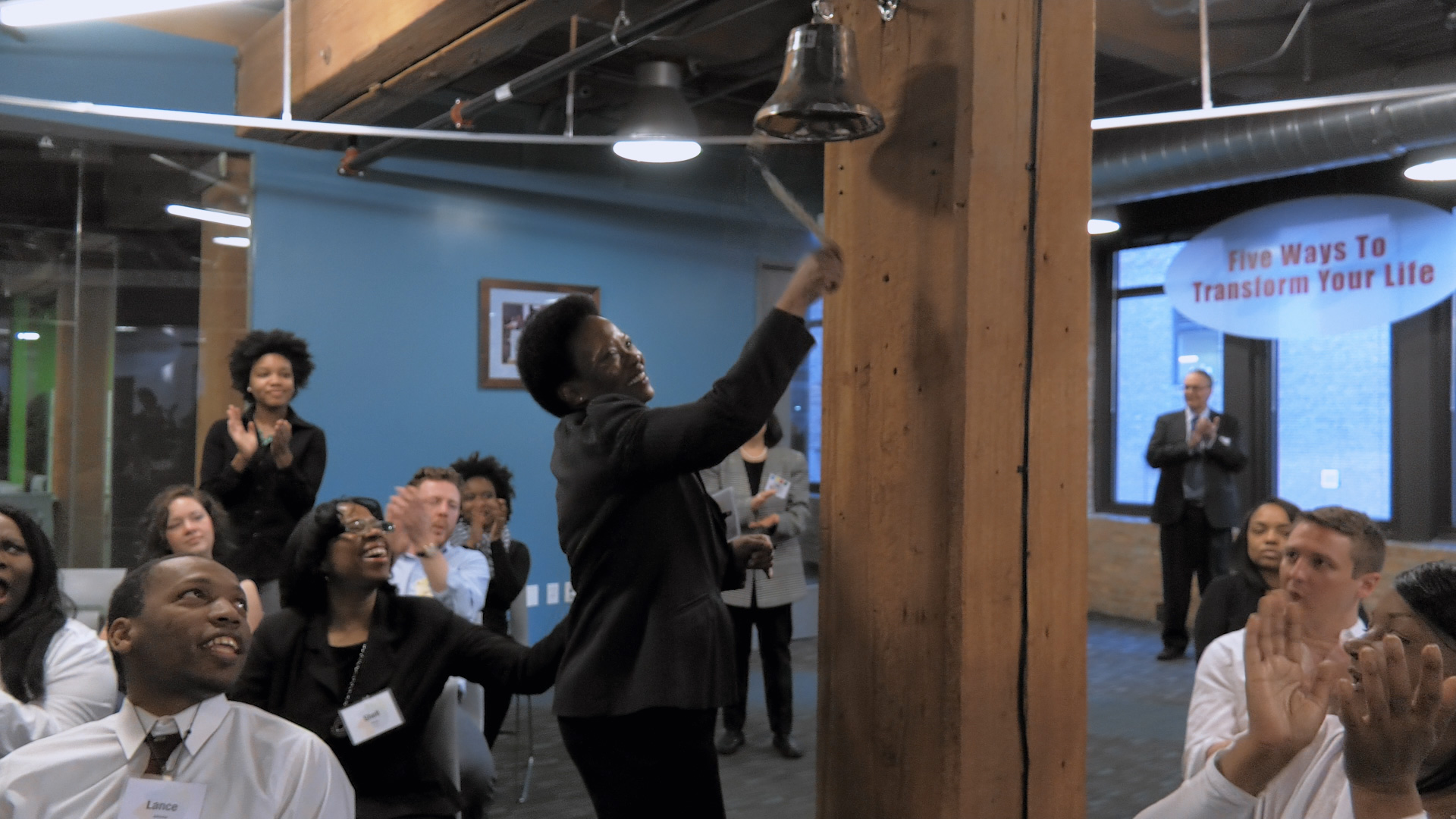
About Cara
Cara’s mission is to build an inclusive economy by developing employment pathways to advance transformative individual and community success. Cara helps people experiencing poverty build the skills and the confidence they need to get, and keep, good jobs. Through their personal and professional development and access to employment opportunities, Cara serves as a leader in poverty alleviation in Chicago and beyond. Since 1991, more than 6,500 people have been placed into more than 10,000 jobs and started on their path to self-sufficiency.
Learn more at www.carachicago.org.
Download The Road Up Press Kit (PDF).
Download The Road Up PHOTOS (ZIP).
All promotional images should be credited to “Siskel/Jacobs Productions”.
